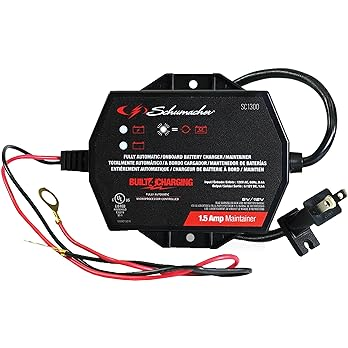As much as I've done with batteries over the last 40 years or so, I'm not sure what that really means. Not being a smarty pants, just that with OEM's, brands, marketing and "supply chain" variables I'm not sure one can go by price or brand. For the last 20 years or so I've gotten GC2's and starting batteries from costco, which for a while now are some flavor of interstates, which seem to be made by exide. Used to be costco offered a non prorated warranty which made them the clear better deal but since covid or so they don't do that, even retracting a bit with truck (RV) batteries only pro-rata warranted for half the period marked on the battery. They're still a decent price though and despite diminished warranty coverage (where the lower price is likely derived) I've gotten good service from these. Typical service I've seen for both GC2's and SLI's is 7 years, not a bad run for any flooded. In the past I could look at data sheets and see performance differences between various brands and models and discern the better value for whatever I was looking for. Nowadays, good luck finding any data on any retail battery. It's not published and even direct contact with their marketing gets me generic user instructions with little specific or comparative data. Contrasted to the likes of Fullriver, Trojan, USBattery, and others that publish comprehensive data and performance spec's. By price alone the costco interstates would be a "value" brand with a lower expectation of performance and longevity but in practice I've found them to be a great value. Buying a more expensive or name brand ("Die Hard", et al) wouldn't net me any better utility or reliability. Generally among a given battery line the primary difference between like models is the warranty period, and commensurate price. Which of course isn't a warranty, you're buying insurance and betting that it will crap out before the insurance expires. Occasionally you win on that, most times you won't. If you're going to spend up to 2X the price for a "better" battery (warranty) you could just as well roll the dice, buy the "cheap" battery and save the money for the unlikely event it dies and you have to buy another one. Odds pretty good are you won't need to. Anyway, just a rant here to point out that in today's world I'm not sure there's any way to know just what the hell you're getting in the mass retail battery market, so just pick something and run it. You can spend lots more and might get some incremental increase in performance or longevity but in the long run it's cheaper and easier just to go with the mainstream stuff. One thing in your favor with RV's, at least the gas ones, the starting battery has a relatively easy life so performance isn't paramount. Compared to say a commuter car that is started a dozen or more times a week from below 0F to 100F over a period of years, an RV is started much less often and rarely below 30F. Just because the vehicle is "big" the engine is basically the same as a pickup truck so most any appropriately sized battery will work fine. The challenge is to keep the thing from dying due to self discharge or parasitic loads more than anything. Keeping a maintainer on it will go a long way to getting long service life.
Mark B.
Albuquerque, NM

